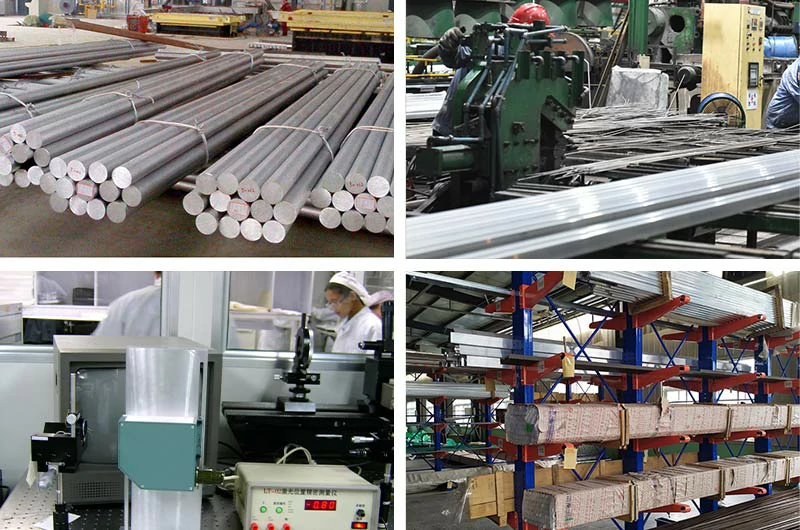Aluminum profile bending, also known as aluminum profile bending, refers to the process of using mechanical force to shape aluminum profiles into desired forms. Due to the lightweight and high malleability of aluminum, aluminum profile bending has inherent advantages, allowing bent aluminum profiles to adapt to different design requirements in a more flexible manner.
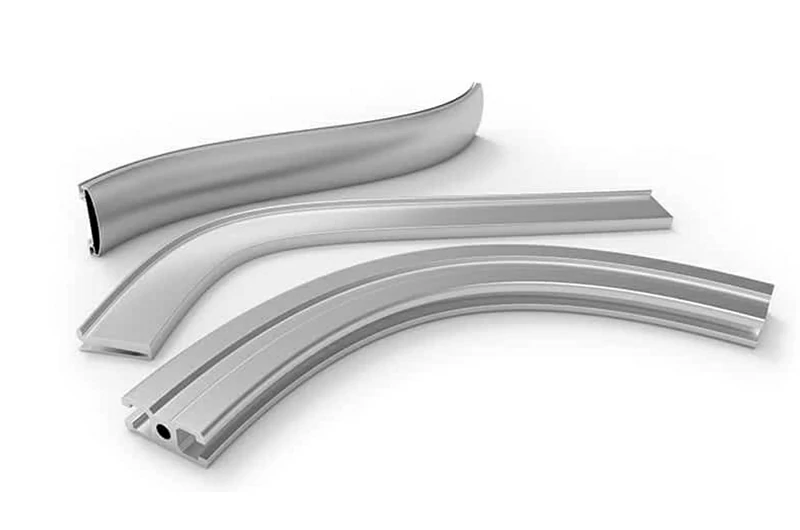
Factors affecting aluminum bending processes
There are three primary factors that affect the bending of aluminum alloys: formability, thickness and bend radius, and elongation.
- Formability: Generally, due to the trade-off between strength and elongation (ductility), higher strength means that aluminum alloys will be more difficult to bend. When one increases, the other decreases.
- Thickness and bend radius: Aluminum alloys harden and become stronger during the bending process. Therefore, thickness and bend radius are factors you need to consider.
- Elongation: Examining the elongation and the difference between yield strength and ultimate tensile strength will also help you make the right choice. When comparing alloys and temper states, tend toward those with the largest range between yield strength and tensile strength, as this indicates better formability.
Three aluminum alloys that are best suited for bending
- 3003 Aluminum Alloy: This alloy is primarily alloyed with manganese and is one of the most common aluminum alloys for bending applications. It offers medium strength along with excellent cold workability and high elongation, allowing it to be bent or formed without heating.
- 5052 Aluminum Alloy: AA5052 is primarily alloyed with magnesium, providing medium to high strength characteristics with good elongation. When annealed, its formability is better than that of the 3003 alloy.
- 6061 Aluminum Alloy: This alloy is a general-purpose heat-treatable alloy. When annealed, it provides a satisfactory difference between yield strength and tensile strength, along with good elongation.
How to bend extruded aluminum: 7 methods
1 Roll bending
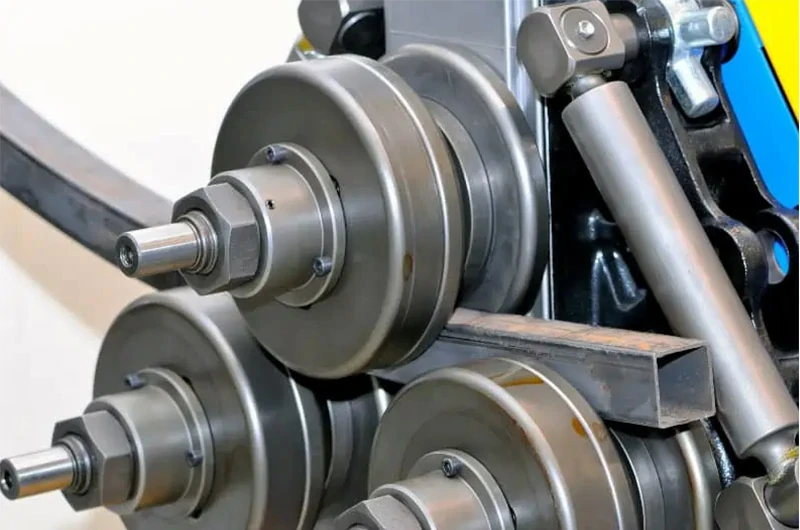
Three-roll bending is a common method for bending long aluminum profiles. It has low tooling costs and can create full circular shapes. Unlike other techniques, it can bend the entire length of a profile. For tighter bends, gradual roller adjustments are usually needed.
2 Stamping bending
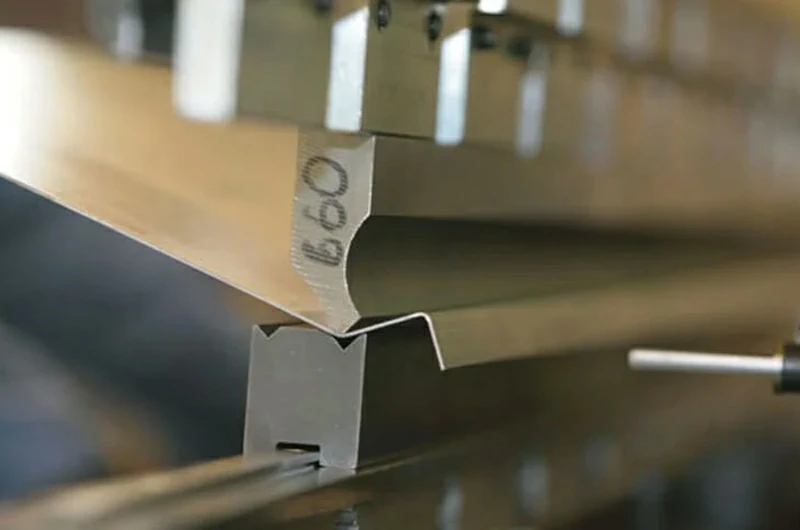
Stamping bending, or press bending, is one of the simplest and most cost-effective methods. It enables precise bending but is more likely to cause deformation compared to other techniques. It also only bends one section at a time.
3 Rotary draw bending
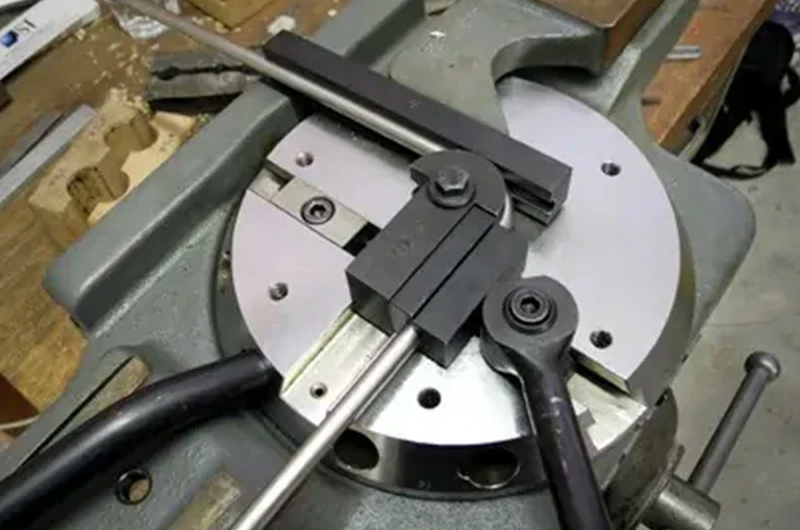
Rotary draw bending clamps the aluminum profile and pulls it around a rotating die for precise bends. It bends one section at a time but can handle larger profiles and create multiple tight bends on one part. Internal mandrels provide support, reducing deformation, ideal for custom round tubes and complex bends.
4 Compression bending
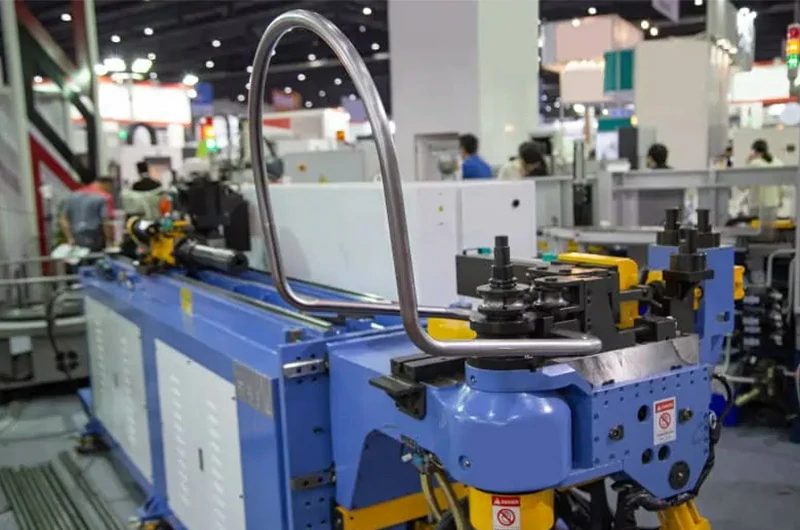
Compression bending is similar to rotary draw bending but simpler. It wraps the aluminum profile around a fixed die using compression instead of pulling it around a rotating die. It handles one section at a time and can create multiple bends in any direction, but it's less supported and more prone to deformation. The key benefits are speed and low cost, ideal for high-volume production.
5 Stretch bending
Stretch bending involves bending a workpiece under constant tension. Although it has higher die costs, it reduces deformation and surface damage. This method is suitable for larger bend radii and can create diverse shapes on large workpieces. As production volumes increase, the cost of stretch bending dies becomes more economical.
6 Free bending
CNC freeform bending is among the most advanced bending methods. It uses articulated ceramic dies to form aluminum extrusions into complex custom bends. While often used for round tubes, it can create unique shapes for other extrusion profiles. This method is not yet widespread, but it could become crucial in the future.
7 Manual bending
Manual bending of aluminum uses hand tools like pliers or hammers to shape the metal. It's simple and low-cost, ideal for small or thin aluminum parts. However, it's slower, not suitable for larger or thicker aluminum, and can lead to inconsistent bending results.
Why choose MASTAR?
- MASTAR supplies high-quality aluminum alloy profiles, ensuring that the bent profiles meet industry standards for strength, durability, and precision.
- We offer a variety of bending angles, radii, and curve choices to meet the needs of different industries and applications.
- Custom bending services are available based on customer designs and specifications to meet individual requirements.
- We offer competitive pricing, with lower rates for bulk purchases and discounts for returning customers.
- We provide quality inspection reports, with all performance metrics meeting the standards, giving customers peace of mind.
- A rich inventory of standard sizes allows for quicker delivery on same-size purchases. We also support cutting services for added convenience.
If you need bent aluminum profiles, please contact us. We will provide comprehensive solutions and one-stop services tailored to your requirements.
